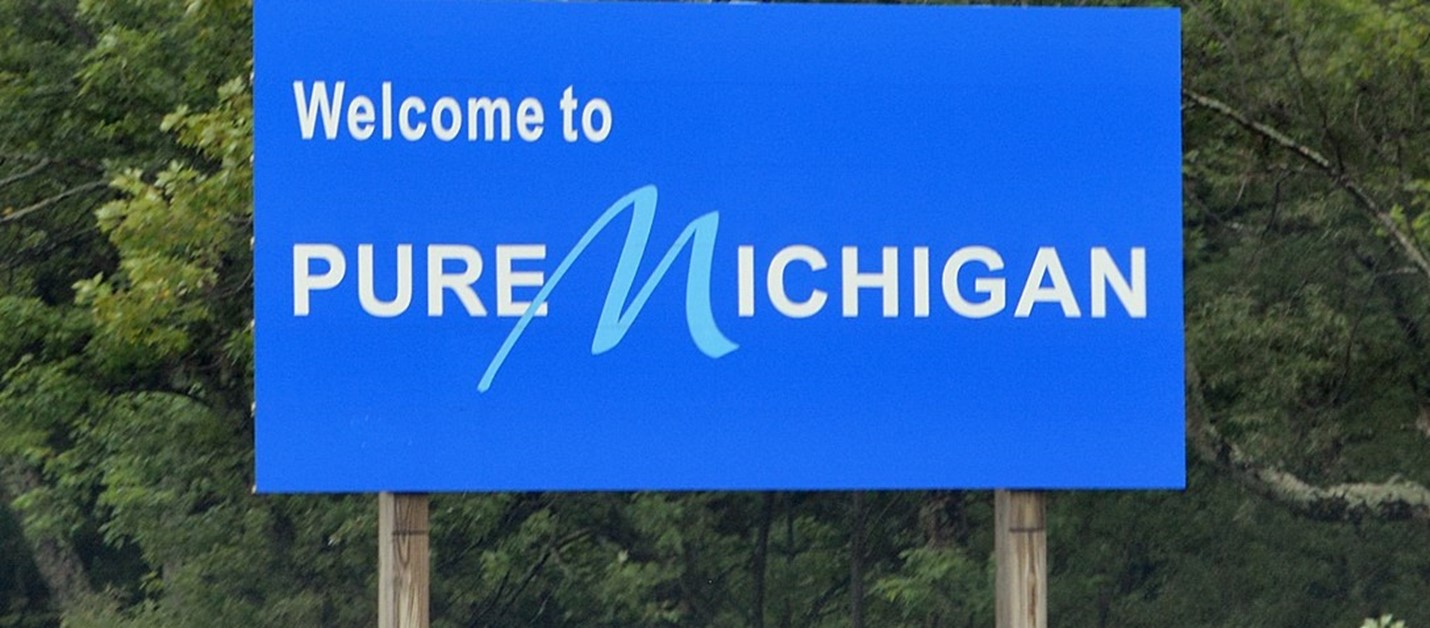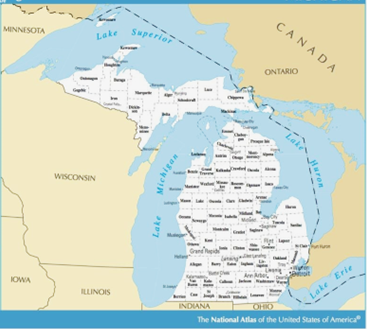
Living in Michigan? It’s time to check your deed restrictions. Michigan deed holders should know that changes made to the state’s Marketable Record Title Act (MRTA) took effect March 29, 2024. And there’s a new deadline to record a notice under the MRTA.
KEY POINT TO KNOW: Michigan deed holders now have until September 29, 2025 to keep certain conditions on their deeds that originated 40+ years back. Otherwise, the law will effectively delete certain longstanding “rights and interests” including deed covenants, restrictions, and easements — by letting them sunset.
Now, let’s go into some details about deeds, restrictions on deeds, and how Michigan’s changes could apply to you and/or your homeowner’s association.
What’s the Relationship Between a Deed and a Restrictive Covenant in Michigan?

Each time a home’s deed changes hands, the new version reiterates the size and shape of the plot, its borders, and various details of how the land may be used. Restrictions must follow state law, local zoning, and so forth. Each owner agrees to the deed’s language when accepting the deed to a home.
Deed restrictions can make a big difference in what people can do with their homes. Some of these restrictions rule out certain home-based commerce, for example. Some rule out installing a patio, additional living units, sheds, decks, or garages. Some limit renting, subletting, home-sharing, parking, pet keeping, aesthetic changes…and so forth.
A title search can trace most deeds and all their important land-use details back to their sources by the liber (book) and page numbers that point to where the deed is filed in the county records.
Knowing this, imagine you buy a Michigan home subject to restrictive covenants in 2024. Now, consider the past 40 years. Have the deed’s restrictions been recorded or sufficiently identified during those four decades? They’d better be. Because if not, the restrictive covenants will lose their power.
In plain terms, Michigan law sets forth a span of 40 years for a chain of title before it needs review. During that span of time, claims, easements, and deed restrictions should be recorded or expressly identified. After 40 years of that being left undone, the claims age out.
The upshot? If you have held your Michigan deed for 40+ years, and it only vaguely mentions restrictions, future owners might not be bound by that language any more. To keep the language in effect will depend on recording a notice of claim of interest with the Register of Deeds. It must cite the source — the document that created the restriction or easement.
How Can Deed Holders Keep Restrictive Covenants From Expiring in the Future?
First, review your Michigan deed. Look for any mention of restrictions or covenants. Find any vague language, such as:
- …subject to easements of record…
- …subject to restrictive covenants that may be recorded…
- …subject to building and use restrictions as may be recorded…
You get the idea. Deed and title documents must use specific language, such as subject to restrictions recorded at liber ___, page ___.
If your deed restrictions could lose their power, you can record a notice of interest to preserve them. Here are the key elements of a Notice of Interest to Preserve:
- Your (title holder’s) name and mailing address, and the name and address of the person who creates your notice.
- Your notarized signature.
- The restriction or easement you intend to keep in force, identified by liber and page (as noted above) or ID number.
- The legal description for the property.
It’s best not to put off the task until 2025. Gathering up the necessary information to prepare and record the notice will take time and effort.
Should Your HOA or Condo Association File New Paperwork?
Homeowners’ associations (HOAs) include many of today’s freestanding houses as well as condo properties. It’s typical for HOA deeds to include covenants and restrictions so that the unit owners maintain the “character” of their multi-unit properties. HOAs should consult with their legal advisers to keep their restrictive covenants in effect.
The latest (2024) extension gives associations more time to record notices that keep their restrictions. The new file-by date is September 29, 2025. This extra wiggle room will keep hundreds of easements, restrictions, and other agreements in effect.
So, should your homeowner’s association record a notice? We cannot dispense legal advice. So be sure your condo or subdivision’s association is on top of the matter and has consulted their legal expert.
Condo properties might not need to record any new paperwork, given that Section 64 of the Michigan Condominium Act already makes condo owners record the specifics from the master deed and the association’s bylaws. But you or your association should ensure that in fact the exact reference appears, with a specific ID number, or citing to the liber and page of the original restriction.
Whether your deed will or won’t be 40 years old by the new recording deadline, have a condo law expert check your property’s records. In the case of vague language, you’ll need to file at some point. Otherwise your community’s deed restrictions would age out after 40 years.
New Provisions: Some Exceptions Will Apply.
In some situations, nothing needs to be recorded in order to keep and easement or restriction in effect. Notably:
- The law won’t end an easement that’s obviously in use.
- The law won’t end easements necessary to create, maintain, take down, or operate utility infrastructure.
- The law won’t impact oil and gas leases.
Finally, the MRTA cannot end conservation easements or restrictive covenants needed under applicable environmental laws.
Got Vagueness? Speak With a Real Estate Lawyer.
Michigan property owners should assume their property documents need a careful review. Check the deeds and title report and any documents that refer to restrictions or easements. Even lawyers are calling the new law “still-unclear” and calling real estate law specialists “critical” to have.
Michiganders, take note.
Supporting References
Michigan’s Marketable Record Title Act (MRTA), MCL 565.101, et seq. See also Michigan Legislature: Senate Bill 721 (Public Act 20 of 2024).
Michigan Condominium Act: Conveyance and other instruments affecting title to condominium unit; description of unit; recordation (MCL 559.164).
Community Associations Network via CommunityAssociations.net: Update – The Deadline to Record a Notice Under the Michigan Marketable Record Title Act Has Been Extended to September 29, 2025 (Apr. 9, 2024).
Fox 17 West Michigan WXMI via Fox17online.com, quoting Sharan Levine of Levine & Levine Attorneys at Law Kalamazoo: Michigan Homeowners May Need to Act to Protect Property Rights (Mar. 21, 2024).
Rita Khan and Kayleigh B. Long for The Michigan Community Association Law Blog, published by Hirzel Law, PLC: The Deadline to Record a Notice Under the Michigan Marketable Record Title Act Has Been Extended to September 29, 2025. Does Your HOA or Condo Association Need to Record One? (Apr. 9, 2024).
Sara L. Cunningham and McKenna S. Rivers for Foster Swift Collins & Swift via FosterSwift.com: Deadline Extended: Marketable Record Title Act Brings New Requirements for Preserving Land Restrictions & Easements (Apr. 2, 2024).
University of Maryland Libraries: Land and Property Records – Researching Historic Houses.
More on topics: Deed restrictions, Homeowner association impacts on ownership
Image credits: Andreas Faessler CC-BY-SA 4.0 International, via Wikimedia Commons; and U.S. Geological Survey at NationalAtlas.gov.
